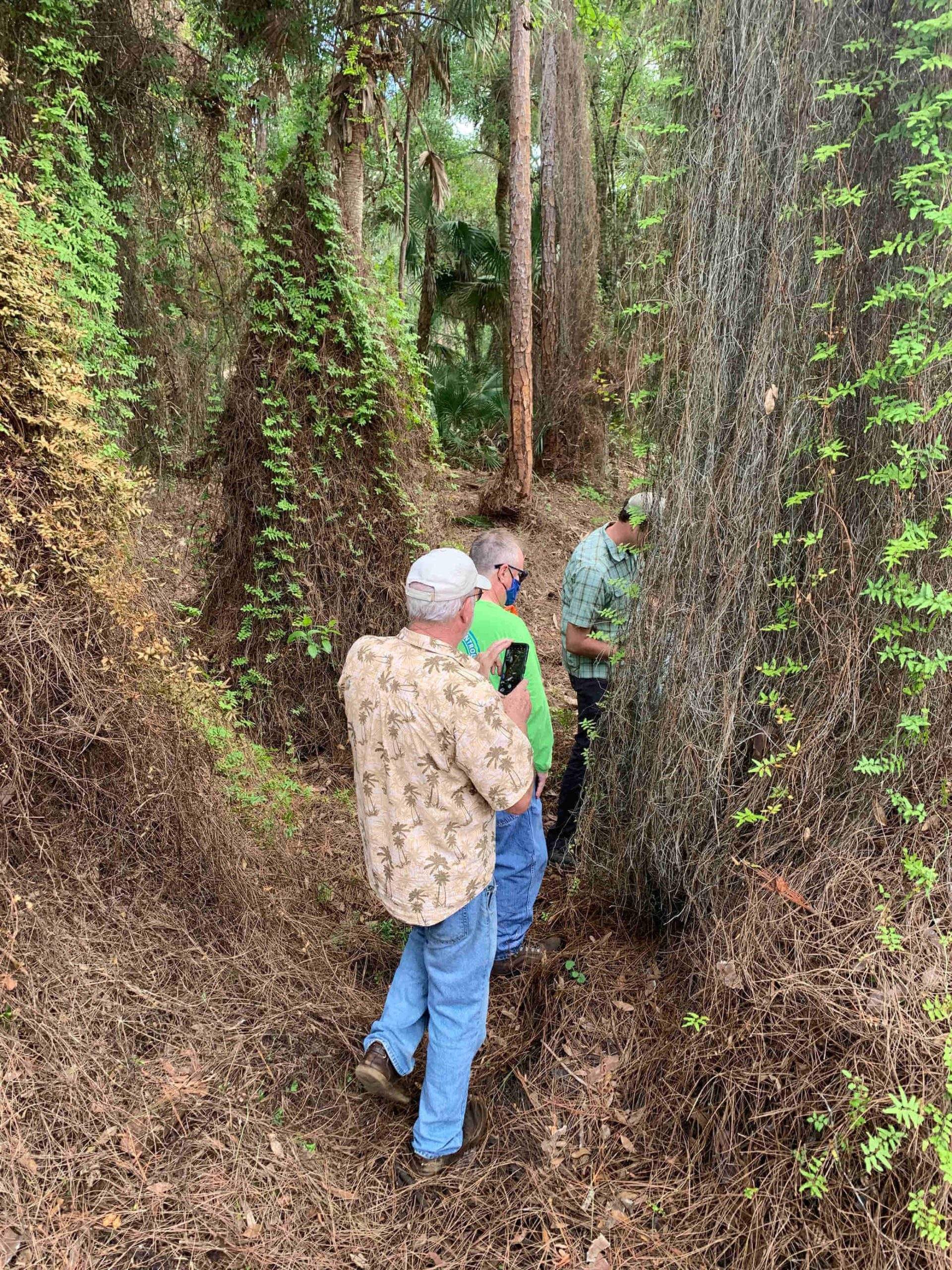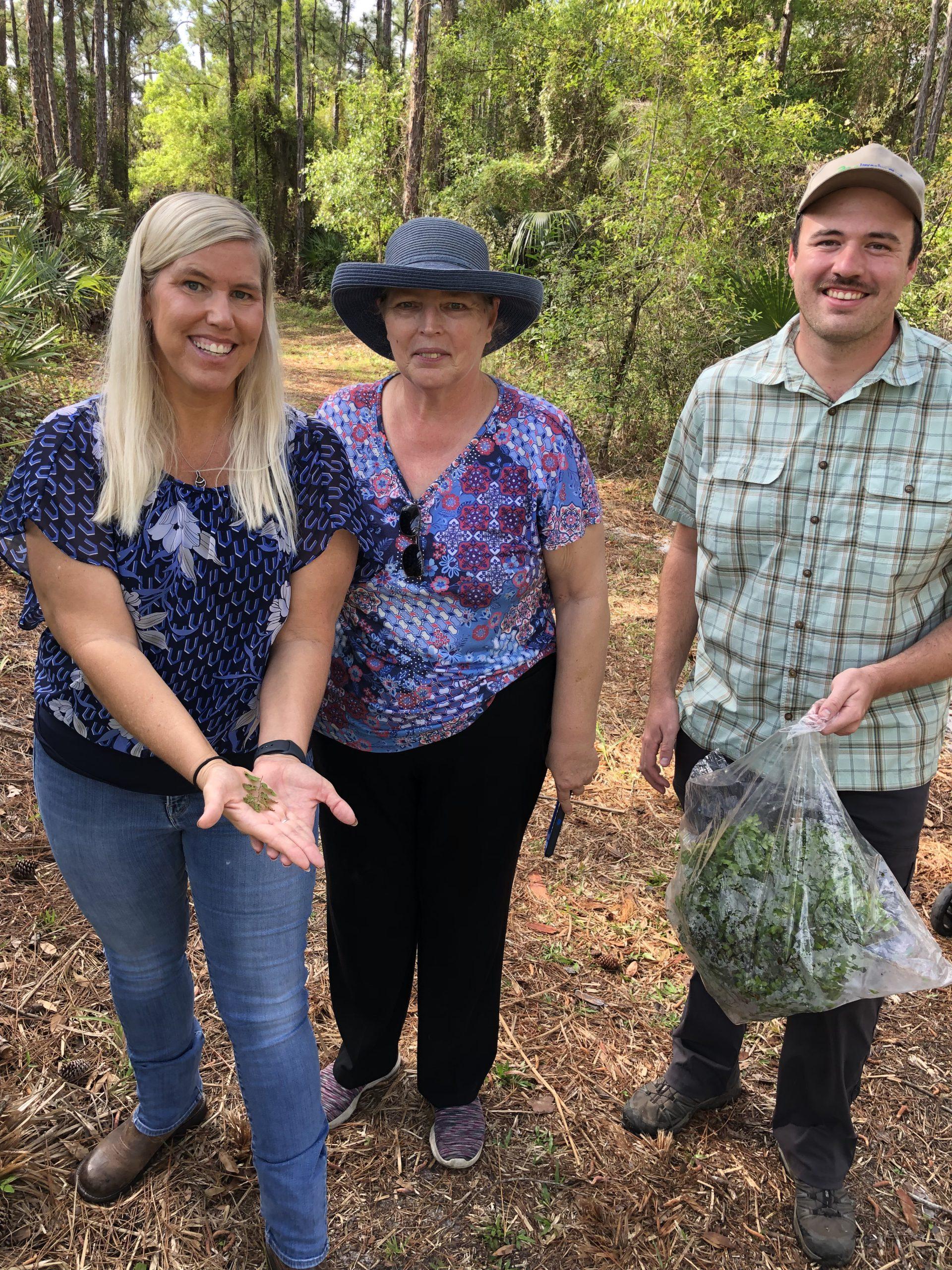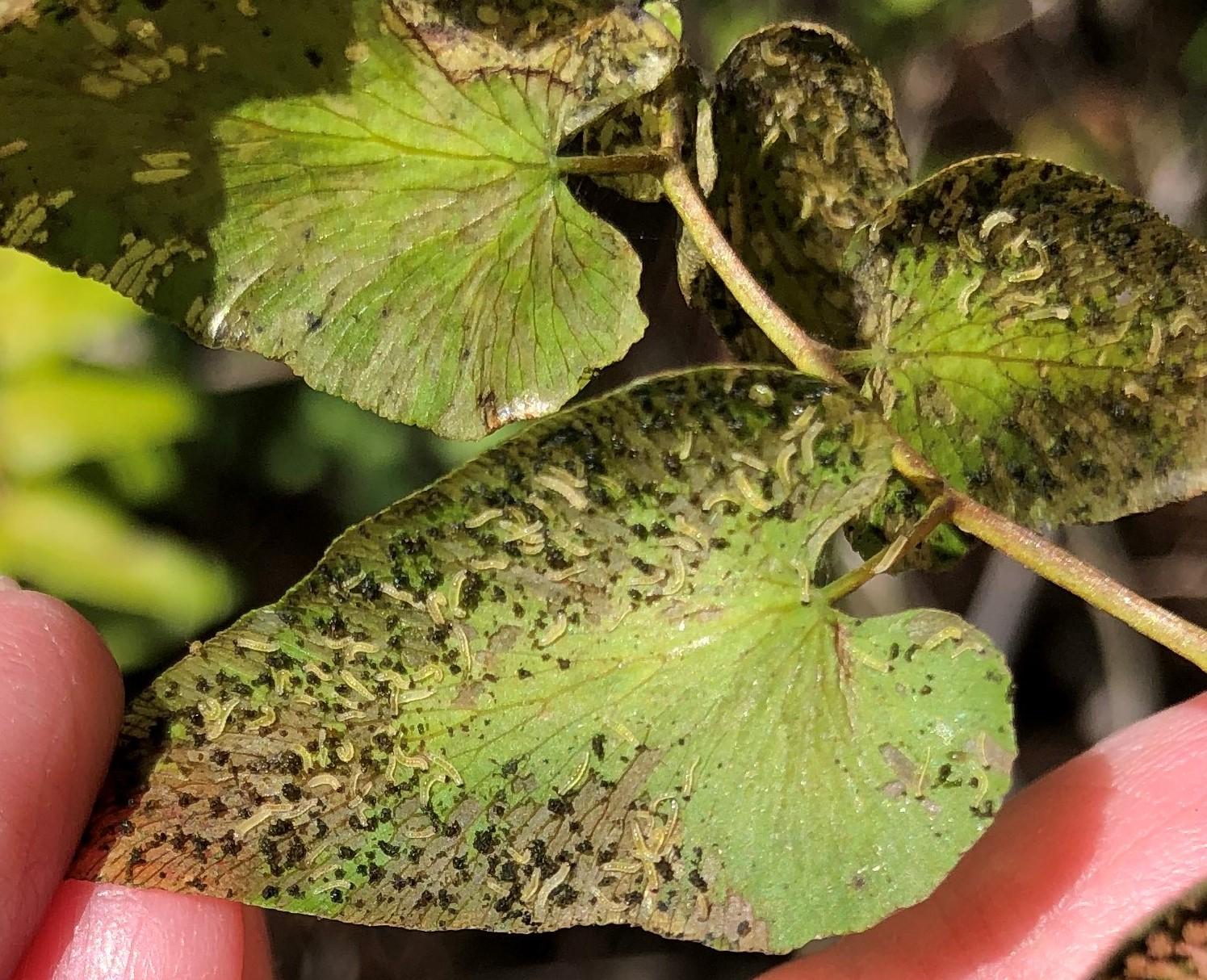About Old World Climbing Fern

On February 18, 2022, I had the opportunity to release biological control agents for invasive old world climbing fern (Lygodium microphyllum). South Florida District Extension Associate Director Jen Pelham and I met with Logan Crees with USDA ARS and property owners to conduct biological control releases in western Martin and St. Lucie Counties.
The UF/IFAS Assessment of Non-native Plants in Florida’s Natural Areas lists old world climbing fern (OWCF) as a prohibited plant. This is the exact wording from the IFAS Assessment:
“Prohibited from use in Florida according to the Federal Noxious Weed List, the Florida Department of Agriculture and Consumer Services (FDACS) 5B-64.011 Prohibited Aquatic Plants, or FDACS 5B-57.007 Noxious Weed List.”
OWCF is native to Africa, Asia, and Australia, and it was first detected in natural areas in Martin County in 1960. It seems like almost poetic justice that we are now releasing biological control agents in Martin & St. Lucie Counties to help with management of this invasive vine. What we found is the insects beat us to it.
Releasing Lygodium Moths and Mites

Logan Crees with USDA ARS works on the project raising Lygodium moths and mites, and today he met with us to conduct the releases. The leaf galling/rolling Lygodium mites (Floracarus perrepae) was one of the insects released. This biological control agent was initially released in 2007, and has established in several locations in Florida. Other closely related insect species are also under examination.

Presence of OWCF Biological Control at Martin and St. Lucie County Sites
Today we also released the Lygodium moth (Neomusotima conspurcatalis). USDA ARS supplied us with Lygodium moth larva to release in both Martin and St. Lucie Counties. An adult Lygodium moth was collected in the wild at the Martin County release site. While on site in Martin County, we were able to confirm that both the Lygodium moth and mite had naturally arrived at the locations before we did. Our releases were considered an augmentation to the naturally recruited population that migrated to the site. I was able to confirm that neither the moths or mites had been present on the old world climbing fern at the St. Lucie County release site.


Overall, much thanks to the entomologists at USDA ARS in Davie, FL for their time and expertise raising these insects, and especially thank you to Logan Crees with USDA ARS for delivering them to us and teaching us so much about them.
If you would like more information about old world climbing fern and biological control, please read our UF EDIS publication
Natural Area Weeds: Old World Climbing Fern (Lygodium microphyllum)
References
Assessment of Non-Native Plants in Florida’s Natural Areas. Lygodium microphyllum. https://assessment.ifas.ufl.edu/assessments/lygodium-microphyllum/
Enloe, S.F., Langeland, K.A., and Hutchinson, J. 2021. Natural area weeds: old world climbing fern (Lygodium microphyllum). [UF EDIS] https://edis.ifas.ufl.edu/publication/AG122
The mission of the University of Florida Institute of Food and Agricultural Sciences (UF/IFAS) is to develop knowledge relevant to agricultural, human and natural resources and to make that knowledge available to sustain and enhance the quality of human life. With offices in each of Florida’s 67 counties, UF/IFAS Extension works to bring science-based solutions to the state’s agricultural and natural resources industries, and all Florida residents.
SolutionsForYourLife.com | @UF_IFAS
 2
2
